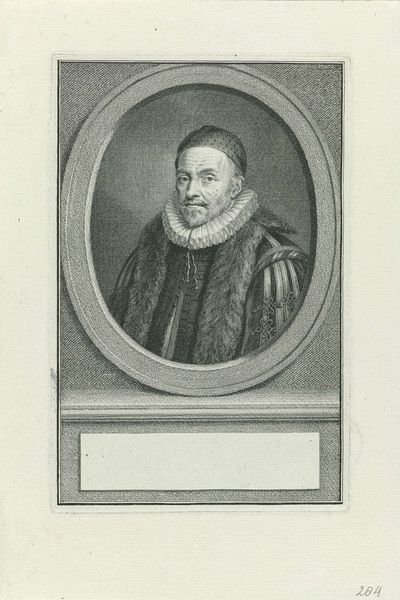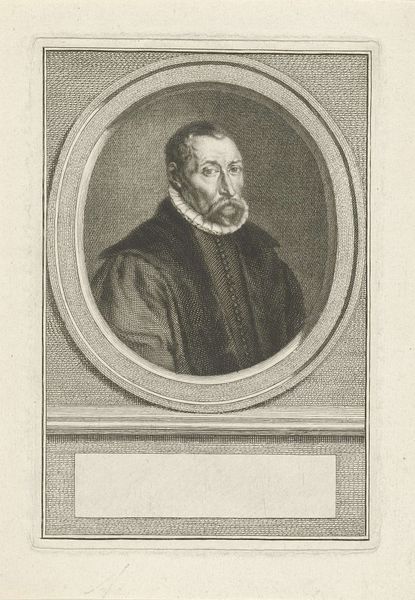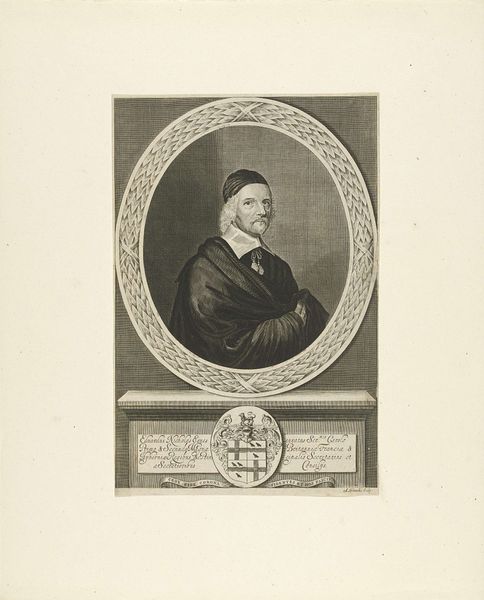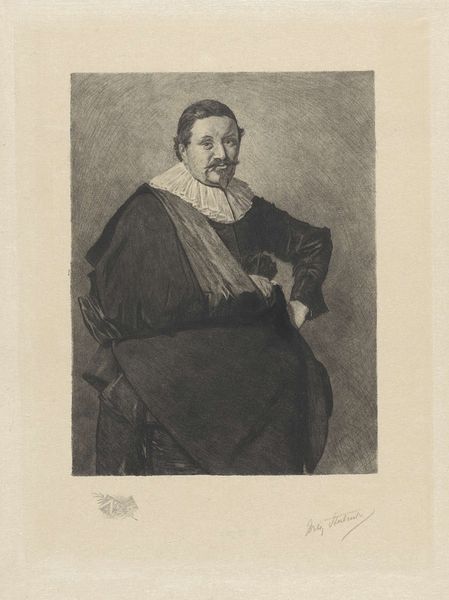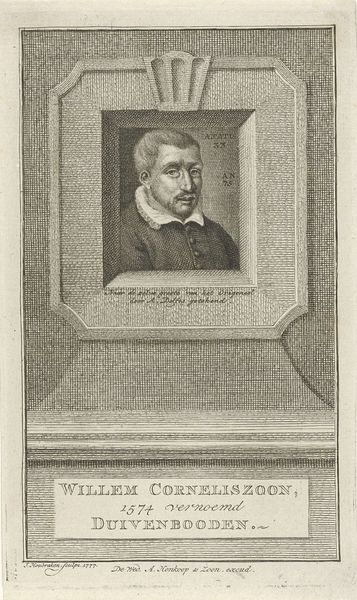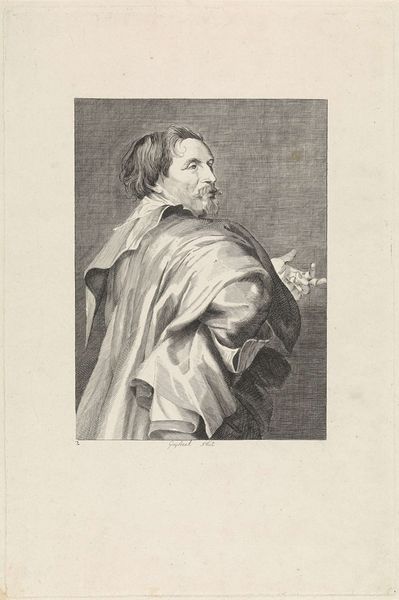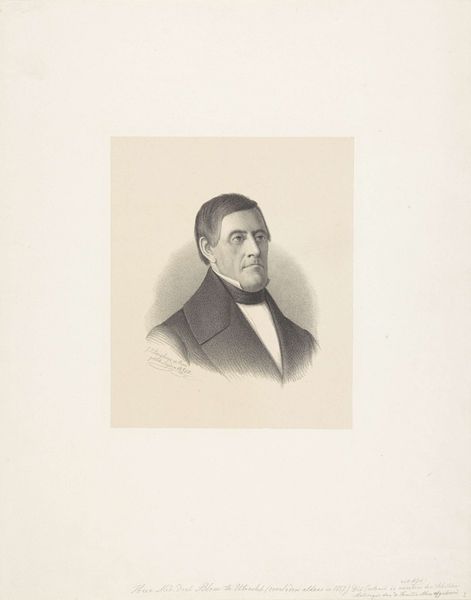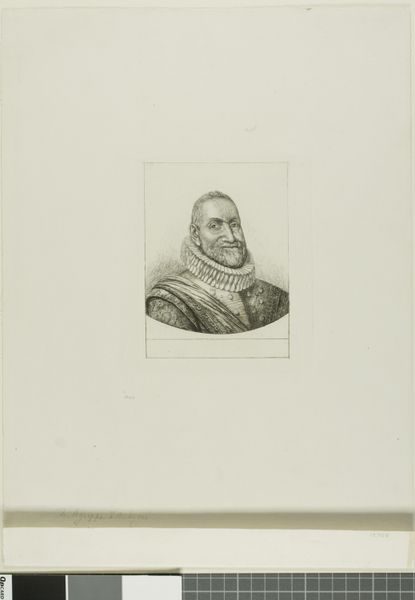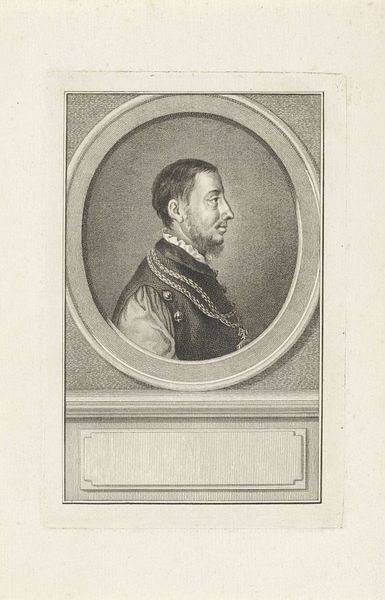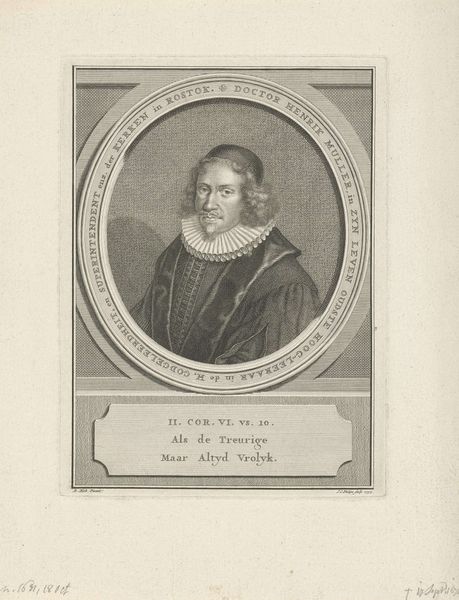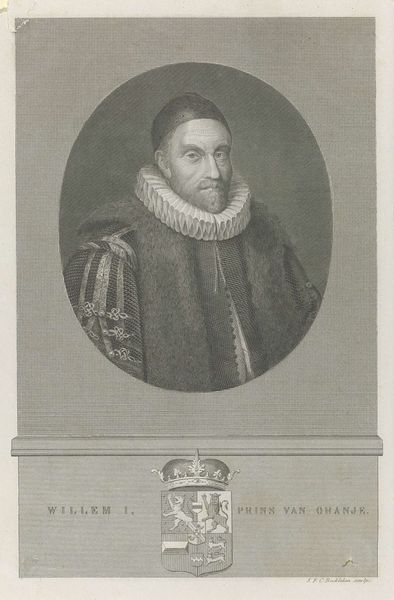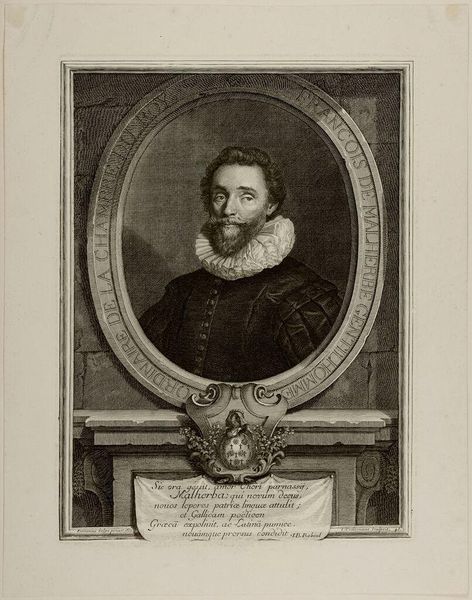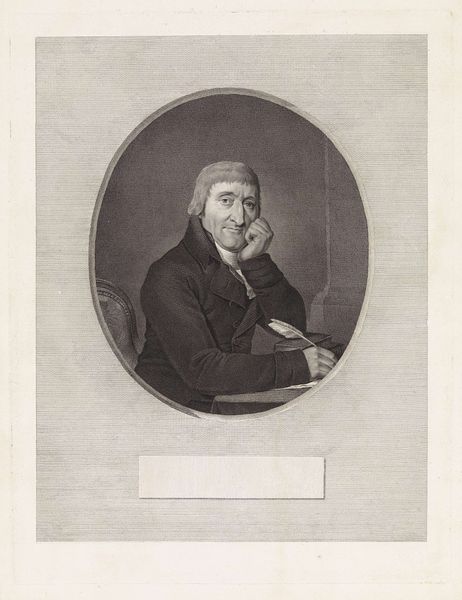
drawing, paper, pencil
#
portrait
#
pencil drawn
#
drawing
#
16_19th-century
#
paper
#
pencil drawing
#
pencil
#
realism
Dimensions: height 250 mm, width 151 mm
Copyright: Rijks Museum: Open Domain
This is "Portret van Alexander Petri," an engraving made by Philippus Velijn. He was a printmaker working in the Netherlands in the early 19th century. Prints are fascinating objects. They are often overlooked due to their apparent simplicity, but this belies the skill needed to produce them. The original image must be carefully incised into a metal plate, which is then inked and pressed onto paper. The resulting image, like this portrait, would have been relatively inexpensive, and could be widely distributed. This reproductive capacity is key. Consider the labor involved - and how it is multiplied across many impressions. Each one extends the reach of the artist's hand and eye. In this way, prints like this are totally unlike paintings or sculptures, which exist as unique objects. They democratize image-making and make it available to a broad public. This accessibility is why prints are so significant in the history of visual culture. They offer insights into the social values of the time and the economic systems that sustained artistic production.
Comments
No comments
Be the first to comment and join the conversation on the ultimate creative platform.

